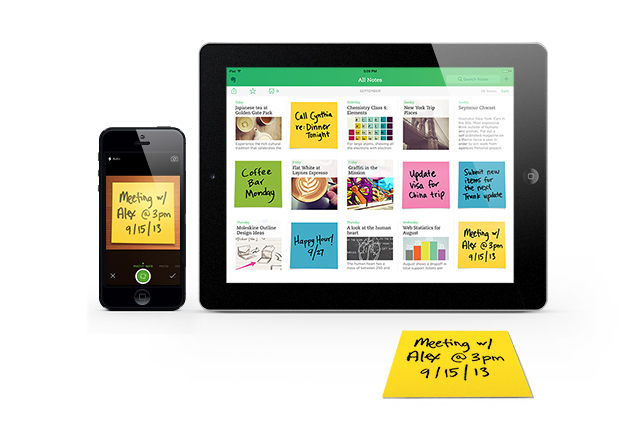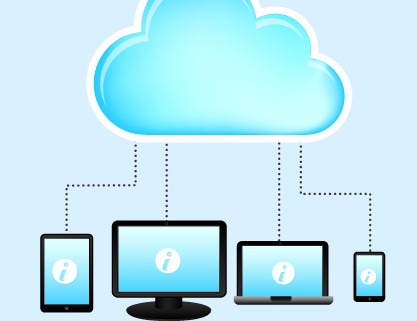
iWeb launches Microsoft Private Cloud
Canada's leading cloud service provider, iWeb, is launching a Microsoft Private Cloud hosting service.
Aimed at giving businesses more control and flexibility over their IT infrastructure, it allows virtual servers to be deployed quickly without the expense and complexity of in-house data centers.

Dell puts cloud access in your pocket
PC and server specialist Dell is launching a new mobile cloud access device that delivers a full HD user experience on any HDMI or MHL enabled display.
The company claims that Dell Wyse Cloud Connect is a completely new end-user device category, bridging thin clients and mobile devices to promote BYOD.

Clickdrive launches, aims to bring driving apps to your car
You shouldn't be using your phone in the car, and laws in many locations tell you so. But there are uses that don't interfere with your concentration on the road, such as mounting your handset on the dash or windshield and using it for navigation. There are also hands-free devices and even built-in solutions within new cars.
Now Clickdrive wants to take this to another level, bringing in-car integration to vehicles that don't currently contain such technology. The hardware-software solution has just launched an Indiegogo fund-raising drive, stating "founder Mark Sutheran and business partner Rishi Saraswat have developed Clickdrive from the ground up to create the world's first device to be entirely dedicated to driving in the information age".

The most popular stories on BetaNews this past week - January 19 -- 25
Handset news aplenty this week. The Nokia Lumia 929 appeared for sale in China, and also showed up on Verizon's US website under the Nokia Lumia Icon name before quietly disappearing. None of this did anything to improve Windows Phone sales for Nokia which were found to be disappointing. Figures released this week showed that phablets are going to become increasingly popular as user look to merge smartphones and tablets in to a single device. It will probably come as little surprise that in the next few years it is predicted that mobile apps will be the most used software. Samsung Galaxy Note 3 owners were disappointed to find that upgrading to KitKat killed their ability to use third party accessories.
Ahead of the release of Update 1 to the operating system, Microsoft finally got around to releasing a guide to mastering Windows 8.1. So keen is Microsoft for you to learn more about Windows 8.1, a second batch of guides was released later in the week. And while you're becoming an expert Windows 8.1 user, Microsoft would like you to take a second look at Internet Explorer and rethink its web browser.

Microsoft Q2 2014 by the numbers: Surface sales soar
Outgoing Microsoft CEO Steve Ballmer got a vote of confidence from customers today, if Surface's sales surge is any indication. In October 2012, he refocused the company on "devices and services", something reflected in the Windows 8.1 tablet and also Xbox One, which launched during fiscal second quarter 2014.
After the closing bell today, Microsoft released long-anticipated Surface sales with its quarterly earnings report. Wall Street analysts and investors also eagerly wondered about Windows 8.1, which revenues looked to be brutally beaten back by historic declines in PC shipments. Surface revenue reached $893 million, up from $400 million during fiscal first quarter. Meanwhile, Windows OEM license sales declined by 3 percent, year over year.

Who do you trust with your personal data -- and why?
Earlier today Mike Williams wrote about a cloud storage provider which is offering a whopping 1TB of space for free, plus a further gigabyte for every day you use the service. It’s a stunning offer and one that should have us all signing up immediately. But most of us are familiar with the saying, "if something sounds too good to be true, it probably is", and 1TB+ of space -- for free -- certainly fits that description.
There are reasons for alarm bells to sound. The company behind Yunio, Shanghai Kui Zhi Internet Technology Co., Ltd, is based in China, and its terms of service are currently all in Chinese, so unless you speak the language, or trust Google’s translation, you can’t immediately be sure of what it will, or won’t, do with your data. And, because you’ve likely never heard of the company, how sure can you be that your data is safe, and the firm won’t go out of business?

Get 1TB+ of free cloud storage with Yunio
Most consumer cloud services compete on storage space in a small way. Dropbox offers 2GB, SkyDrive starts with a free 7GB, Google Drive delivers 15GB, and so on.
If none of this gets close to what you need, though, you might prefer Yunio. Not only does it provide a chunky 1TB for free, but you’re also allocated a further gigabyte for every day you use the service.

Secure cloud storage provider MEGA launches MEGAsync desktop tool for Windows
New Zealand-based MEGA has launched MEGAsync 1.0 FINAL for Windows, the first stable release in a planned trio of desktop tools (Mac and Linux versions are promised soon) giving MEGA account holders access to their cloud-based files via their computers. It follows the launch of the mobile MEGA app for Android and iOS.
MEGA -- which includes Kim Dotcom among its founders -- offers robust, secure cloud storage using 2048-bit RSA encryption. It also offers a generous free 50GB of storage space, with paid-for plans offering up to 4TB secure storage with extended bandwidth (up to 8TB/month).

Evernote Premium available for free to more Deutsche Telekom European customers
In March 2013, popular note-taking service Evernote announced a partnership with German mobile operator Deutsche Telekom which would enable the latter's subscribers to receive free access, for one year, to the Evernote Premium plan. First available only in Germany, the offer is now extending to 12 more European countries.
There is a caveat, however. While German subscribers have been able to benefit from 12 months of free Evernote Premium, the Deutsche Telekom customers in the additional eligible countries -- Albania, Austria, Croatia, Czech Republic, Greece, Hungary, Montenegro, Macedonia, The Netherlands, Poland, Romania and Slovakia -- only get half as much (six months).

LogMeIn Free is no more -- look elsewhere for your free remote access needs
Need a free remote access tool? Any day now your number of choices drops by one as the free version of LogMeIn will soon be no more. In a statement posted to the management section of its website, LogMeIn announces that LogMeIn Free is "going away".
Like a gentle parent euphemistically softening the blow about a departed pet or loved one having "gone to sleep", LogMeIn is using this terminology to usher in the news that if you want to keep using its products, you're going to have to pay.

Kim Dotcom unveils Baboom music service
The famous, or perhaps infamous, Kim Dotcom once ran MegaUpload before a massive shutdown effort carried out by the government. He later launched Mega, flaunting it to the very people who set out to ruin him. But the flamboyant entrepreneur has always seemed most interested in music, and today he launches his very own streaming service.
Baboom launches, promising a combination of both Spotify and iTunes. Dotcom is soliciting artists to come in and set up their own pages, which will include a bio, images and videos. It is free for them to setup their presence on the new site.

Redis Cloud becomes available on SoftLayer
Garantia Data has announced the availability of its Redis Cloud product in the IBM-owned SoftLayer infrastructure as a service (IaaS) platform.
IBM only acquired SoftLayer around six months ago but Big Blue seems keen to strike deals to make its cloud platform competitive with rival offerings from Microsoft and Amazon.

Box gives 50 GB of free storage to iPhone and iPad users
It seems to be a big day for cloud storage. Earlier Google added additional functionality to its Drive product. Now Box has an update of its own, though this new release is geared towards the mobile crowd, bringing more storage to those on iOS devices.
Additional cloud storage isn't all that's included, though. "We've overhauled our app to make it super-fast, simpler to use and more immersive. The result, we believe, is the best content viewing and collaboration experience available today for your iOS device".

Google Drive update adds an activity stream
Cloud storage has become the norm these days, with the likes of Amazon, Microsoft, and Apple all offering services. It's even built right into Windows 8.1 and Office 2013, and many other apps are adding various integrations.
Now Google is announcing an update to Drive, which brings new, and much needed functionality to its offering. The service allows for easy collaboration on projects, but until now, it was difficult to track the various changes being made.

Dropbox talks about its weekend outage, says data is safe
Over this past weekend Dropbox went down, and thanks to all of the recent news about companies being hacked, the worst was feared. But those unconfirmed reports have proven to be false, as the cloud storage service has set the record straight.
The real truth behind the incident turns out to be much more mundane. In fact, it was simply a scheduled maintenance that went wrong. "On Friday at 5:30 PM PT, we had a planned maintenance scheduled to upgrade the OS on some of our machines. During this process, the upgrade script checks to make sure there is no active data on the machine before installing the new OS. A subtle bug in the script caused the command to reinstall a small number of active machines. Unfortunately, some master-slave pairs were impacted which resulted in the site going down".
